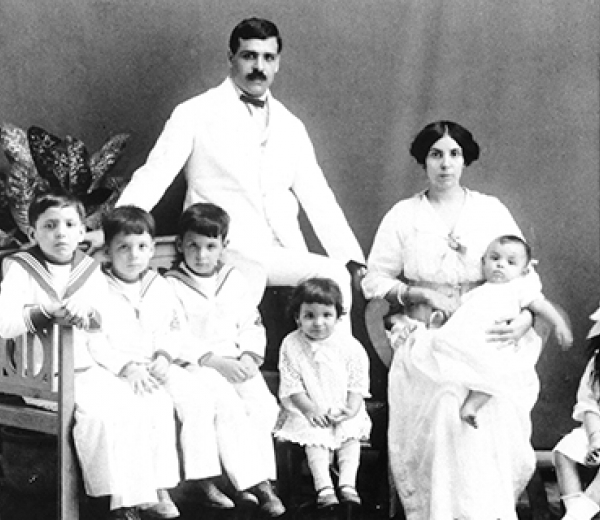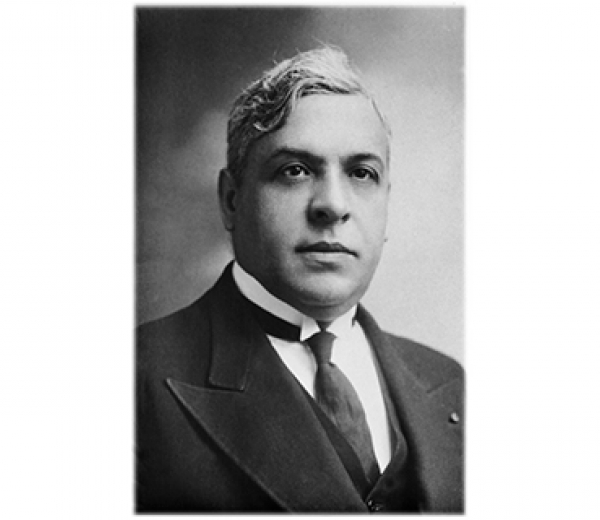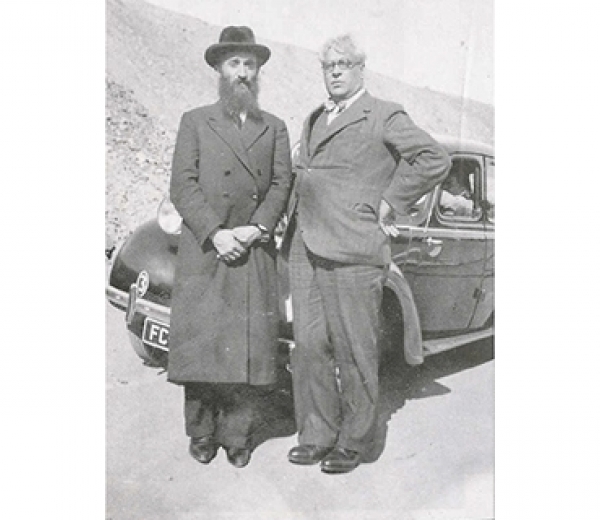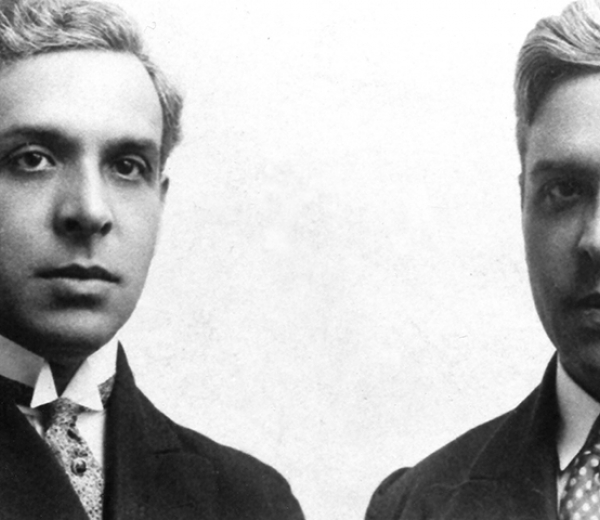Saviors in History: Aristides de Sousa Mendes
Submitted by global publisher on Mon, 07/11/2016 - 14:40
English
Intro:
Located on the edge of Europe, Portugal was largely untouched by World War II and the extermination of Jews and Gypsies. But here, too, there were those who refused to remain idle as tragedy engulfed the continent. Aristides de Sousa Mendes showed true courage as he intervened to help people in danger. He issued visas to 30,000 refugees, the majority of whom were Jews fleeing the Nazis, helping them to avoid certain death. Today, Mendes’s name is engraved in gold in the pantheon of the Righteous Among the Nations.
Weight:
1 200
Story elements:
Text:
Located on the edge of Europe, Portugal was largely untouched by World War II and the extermination of Jews and Gypsies. But here, too, there were those who refused to remain idle as tragedy engulfed the continent. Aristides de Sousa Mendes showed true courage as he intervened to help people in danger. He issued visas to 30,000 refugees, the majority of whom were Jews fleeing the Nazis, helping them to avoid certain death. Today, Mendes’s name is engraved in gold in the pantheon of the Righteous Among the Nations.
Text:
Non-diplomatic relations
Aristides was born on July 19, 1885, into a provincial aristocratic family from Cabanas de Viriato, a village in northern Portugal. He grew up among Catholics and monarchists. His father was a judge at the Coimbra Court of Appeals. In 1907, Aristides, a brilliant law school graduate, settled in the capital, Lisbon, intent on becoming a diplomat and following a consular career. He married his childhood sweetheart Maria Angelina Coelho de Sousa. His career took the couple around the world; their children were born in Zanzibar, Brazil, Spain, the United States and Belgium.
Image:

Text:
|
Aristides and Angelina de Sousa Mendes with their first six children, 1917 |
Aristides’ career was far from smooth: his unpredictable temper led to numerous disciplinary violations. Many found his behavior too informal for his postings, prompting repeated conflicts with his colleagues and his superiors in the countries he was sent to.
In 1929, Aristides de Sousa Mendes was appointed the Portuguese consul general in Antwerp, Belgium. There, he became friends with well-known people such as the writer and Nobel Prize laureate Maurice Maeterlinck and scientist Albert Einstein. After ten years he left under a cloud and transferred to Bordeaux amid scathing criticism of “behavior inconsistent with diplomatic protocol” and scandalous reports of extramarital affairs.
A document worth a life
The relentless spread of Nazism forced thousands of people to flee their homes. Portugal’s location and neutrality during wartime made it a popular destination for numerous refugees, Jews and stateless persons. Trying to escape repression, they often procured counterfeit Portuguese passports.
Image:

Text:
|
Aristides de Sousa Mendes in 1940 |
In 1937, the Portuguese Prime Minister António de Oliveira Salazar came out with a public denunciation of the Nuremberg racial laws, and a year later the cardinal-patriarch of Lisbon, Manuel Gonçalves Cerejeira, openly criticized Hitler’s regime. That same year, Salazar ordered the Portuguese Embassy in Berlin to do everything possible to protect Portuguese Jews, and Jewish refugee assistance organizations appeared in Lisbon.
But after Austria was annexed in 1938 and World War II began in 1939, there was a significant influx of illegal migrants coming into Portugal. The country attempted to take measures to to curb the flow of refugees. Transit visas were to be issued only to people with documents confirming a final destination beyond the country – usually in the United States or Canada.
It wasn’t long before Aristides de Sousa Mendes violated this new rule. Soon after he got the relevant dispatch from the Foreign Office, he went against his superiors to issue a visa to an Austrian Jew, historian Arnold Wiznitzer. Despite a reprimand from Lisbon, Mendes again disobeyed the order on March 1, 1940 to get a visa to a Spanish political refugee, the communist Eduardo Neira Laporte, a former professor at the University of Barcelona.
After Hitler’s army invaded France on May 10, 1940, several million refugees made a move for the south of Europe.
The Portuguese consulate in Bordeaux had previously issued just 1,200 visas, but on June 17, 1940, Mendes decided to issue visas to everyone.
Later, he would explain that he was “impelled by divine power.” “From now on, I will issue visas to everyone! No more nationalities, races or religions!” he decided.
The consulate began to issue hundreds of visas every day. The staff was exhausted, and soon began to receive assistance from Rabbi Chaim Kruger, who knew Mendes from Antwerp. The Portuguese Foreign Minister received a note from the British Embassy, accusing Mendes of "deferring until after office hours all applications for visas" as well as "charging them at a special rate" and requiring at least one refugee "to contribute to a Portuguese charitable fund before the visa was granted.” Friends from Lisbon tried to warn consul Mendes of the impending danger, but he always answered: “If I’m forced to disobey orders, I prefer to go against people, not God.”
Image:

Text:
|
Rabbi Chaim Kruger with Aristides de Sousa Mendes, 1940 |
In 1940, Aristides left Bordeaux and went to Bayonne, where on June 20-23 he continued his work from the cabinet of the Portuguese vice-consul. Even after the French armistice with Germany became official on June 22, Aristides ignored higher orders and continued to issue visas to anyone who applied. When Hitler’s tanks finally made it to the Pyrenees, the consul, risking his own life, went to the Spanish border to plead with the border guards to let the refugees through.
Thanks to the visas issued by Mendes, many refugees were able to enter Portugal, where they were given board and lodging.
But the man himself was recalled to Lisbon in early July amid accusations of several serious transgressions, including disobedience, abandoning his post at Bordeaux, extortion and forging documents. The consul was let off with a disciplinary warning, but his diplomatic career was over.
For the rest of his life Aristides lived modestly in his family home at Cabanas de Viriato. He died there in 1954, alone and destitute, having spent all of his money and leaving behind 14 children.
In 1966, Aristides de Sousa Mendes was named the Righteous Among the Nations, but the Portuguese Republic did not rehabilitate him until November 15, 1986, more than 30 years after his death.
Subtitle:
Issued visas to thousands of people fleeing Nazis
Author:
Tigrane Yegavian
Header image:

